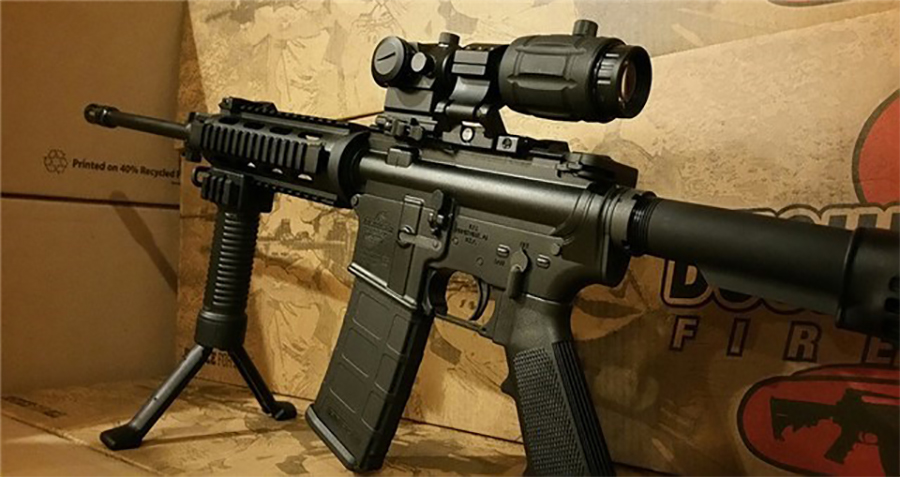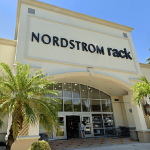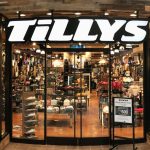The families of five children and four adults killed in the 2012 Sandy Hook Elementary School shooting reached a $73 million settlement with the now-bankrupt gun manufacturer Remington and its four insurers. The settlement could open the door to more lawsuits seeking to hold gun companies liable for mass shootings.
The settlement comes more than seven years after the families filed a wrongful-death lawsuit against Remington, the maker of the Bushmaster AR-15-style weapon, shown above, the gunman used in the shooting.
The families have also “obtained and can make public thousands of pages of internal company documents that prove Remington’s wrongdoing and carry important lessons for helping to prevent future mass shootings,” the plaintiffs’ attorneys said in a news release.
The families sued Remington in 2014, alleging it should be held partially responsible for the shooting because of its marketing strategy.
The settlement is the largest and first of its kind since a federal law was enacted in 2005 providing gun makers with broad protection from liability in the unlawful use of their weapons. Gun manufacturers have paid settlements in the past 17 years to gun owners over alleged product defects but not to victims of gun violence.
In the lawsuit, originally filed in Connecticut state court, the families argued Remington negligently entrusted to civilian consumers a weapon suitable for use only by military and law enforcement and violated the Connecticut Unfair Trade Practices Act through the sale or wrongful marketing of the rifle.
A lower state court threw out the lawsuit in 2016, citing the federal PLCAA law. But the state high court reinstated the case. The U.S. Supreme Court in 2019 decided not to take up an appeal by Remington, effectively allowing the suit to move forward.
The plaintiffs’ attorneys said that the $73 million settlement is all of the available coverage that Remington’s insurance carriers could pay. Last summer, Remington approached the families with a nearly $33 million settlement offer. At the time, lawyers for the families said they would consider their next steps.
The families did not accept the earlier proposal “because they wanted to ensure they had obtained enough documents and taken enough depositions to prove Remington’s misconduct” and to “to ensure the case’s message to the insurance industry was clear,” according to the news release.
The settlement will be divided evenly among the nine families.
Remington did not admit liability in the settlement, a spokesman for the National Shooting Sports Foundation (NSSF), an industry trade group, told the Wall Street Journal. The settlement is a major defeat that opens up the prospect of further litigation.
“This is a pivotal moment in the effort to use civil litigation to hold gun manufacturers accountable for how they market and sell their products,” Heidi Li Feldman, a law professor at Georgetown University, told the Los Angeles Times. “It is a big defeat for Remington … but I wouldn’t be surprised if it also leads to renewed calls for legislative protections for the firearms industry.”
According to the Wall Street Journal, firearms industry representatives do not expect the settlement to affect other gun makers because Remington’s insurers agreed to it after the company went bankrupt. Existing firearms manufacturers are expected to defend themselves more vigorously, they argued.
The federal law, the Protection of Lawful Commerce in Arms Act, “will continue to block baseless lawsuits that attempt to blame lawful industry companies for the criminal acts of third parties,” Lawrence Keane, SVP and general counsel for NSSF told the WSJ.
In 2020, Remington filed for Chapter 11 bankruptcy protection for the second time in just over two years. In September 2020, Remington was broken up and sold after a multiday bankruptcy auction, in which seven buyers won the bidding for parcels of the company’s weapons and ammunition holdings.
















